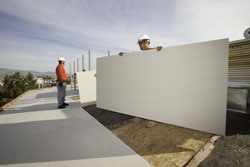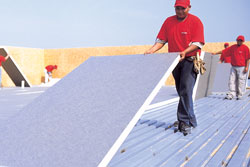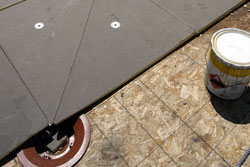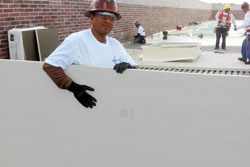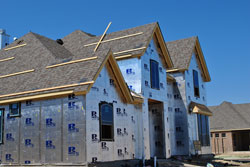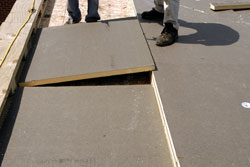PIMA
Polyiso is a closed-cell, rigid foam board insulation consisting of a foam core sandwiched between two facers. It is widely used in residential and commercial construction markets for both roof and wall applications. Because of its strong thermal performance, it is the product of choice for energy-aware architects, specifiers, builders, building owners, contractors, and consumers. As one of North America’s most widely used, readily available, and cost-effective insulation products, polyiso has been cited by the US Environmental Protection Agency for its responsibly low impact on the environment.
As a continuous insulation solution, polyiso offers these benefits:
- A high R-value per inch compared to other insulation products used in commercial and residential construction
- An exclusive third-party thermal performance certification
- Numerous installed cost advantages and an economical cost per R-value
- The ability to meet today’s code required R-values without added layers or the increased costs of thicker assemblies
- Inherent fire resistance due to unique chemical bonds and a versatile insulation solution for NFPA 285-compliant wall assemblies
- Ease of use and peace of mind, as polyiso products are designed for use in a wide assortment of tested, approved, and code-compliant applications
For more than 30 years, the Polyisocyanurate Insulation Manufacturers Association (PIMA) has served as the voice of the rigid polyiso industry, proactively advocating for safe, cost-effective, sustainable, and energy-efficient construction. Organized in 1987, PIMA is an association of polyiso manufacturers and industry suppliers. To learn more, visit www.polyiso.org.
Polyiso Insulation
Polyiso is a closed-cell, rigid foam board insulation used in roof and wall assemblies within commercial and residential buildings of all types. Because of its high thermal performance, it is the product of choice for energy-aware architects, specifiers, builders, building owners, contractors and consumers.
Learn MoreContinuous Insulation
National model energy codes emphasize the use of continuous insulation systems, which provide a continuous insulation layer over an entire wall, not just in the wall cavities.
Learn More